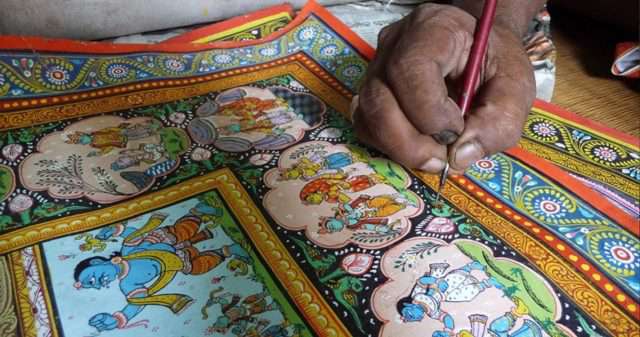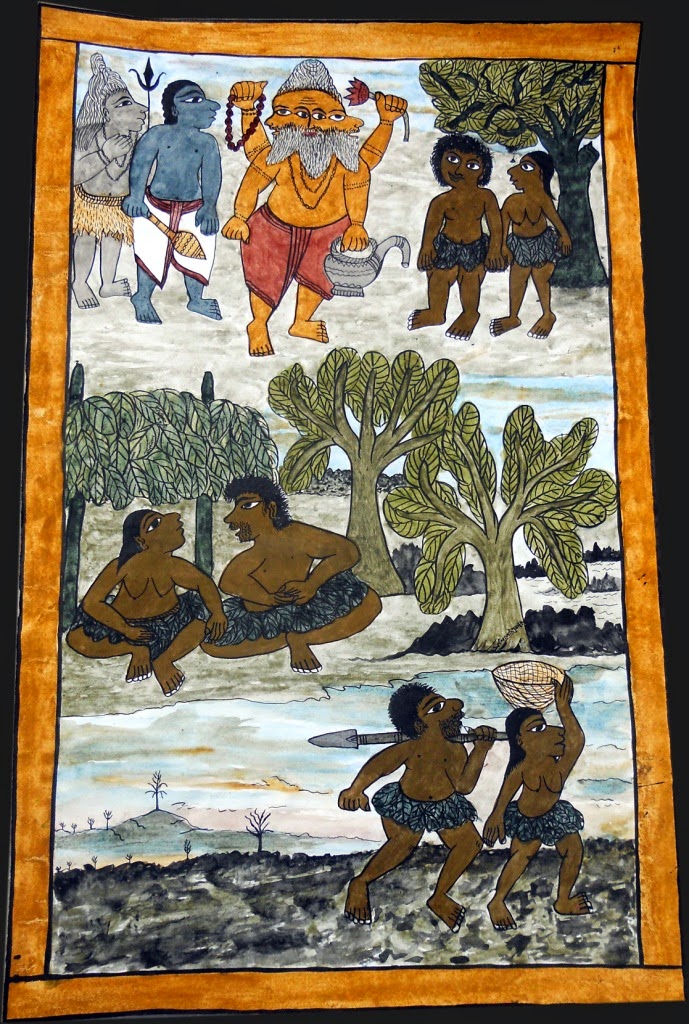Paitkar Painting
India is country of vast cultures and traditions. The most used way of passing this heritage of culture and tradition is telling stories. Paitkar Painting is one of such storytelling practices which is famous all over the state.
History of Paitkar Painting
The historical lineage of the Paitkar paintings can be traced to the Jharkhand and West Bengal and ethnicity and custom associated with them.
The storytelling tradition through Paitkar paintings dates back to around five centuries back. It involves the depiction of Indian mythology or local folklore on paper that runs on a scroll.

Paitkar Paintings involve various themes like tribal lifestyle, rituals, festivals, and stories of Hindu epics. It mainly revolves around great deeds of God and Goddesses (Shiva and Durga).
It also has stories from Ramayana and Mahabharta and all over from the Hindu mythology depicting characters such as Rama, Sita, Mandaudari, etc.
It also has its strings deeply attached to one of the popular Hindu Goddesses in the Bengali household called Goddess Manasa. They also focus on the concept of after-death or life after death.
The Chitrakars of Amadubi Village
The communities which practice this art have been named after this art i.e. Paitkar. They are also entitled as “Chitrakar” which means artist or image-maker.
They live in Amadubi village of Jamshedpur district, Jharkhand. This village is around 400 years old. Although village has 40-45 houses but only a few of them practice the art of Paitkar Painting. However, every villager knows this art. They fostered this art of Paitkar and it is their main source of income.

It is a type of scroll painting and considered to be the oldest tribal painting India. Pata Chitra was traditionally made on scrolls of paper. Natural dyes made from fruits, bark, flowers, soil, stones, and leaves were used to colour the painting giving the scroll a rich, earthy feel.
In some tribes, Paitkar painting is believed to have the power to send the wandering souls of the dead to heaven providing them “Moksh”.
Due to no demand for this art in the market, it became extinct. Due to the intervention of government at the right time, it stood a chance.
Now, there is a demand for this type of painting scrolls in the national and international market. Tribes of Jharkhand are working hard day and night to generate new ideas in order to keep that demand up.



